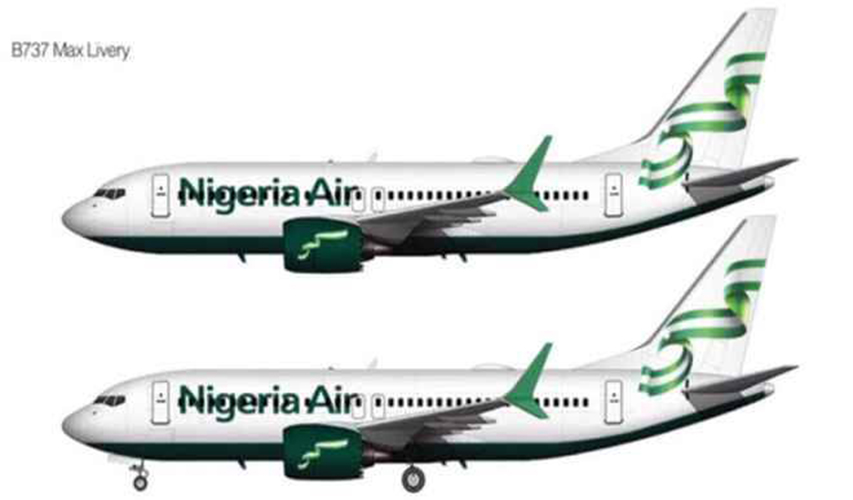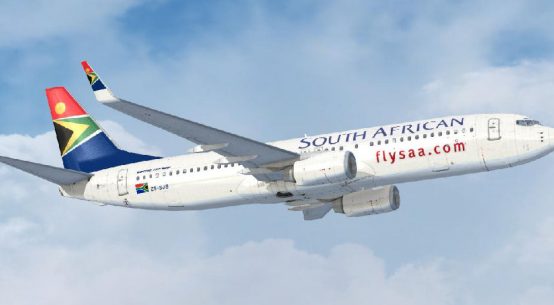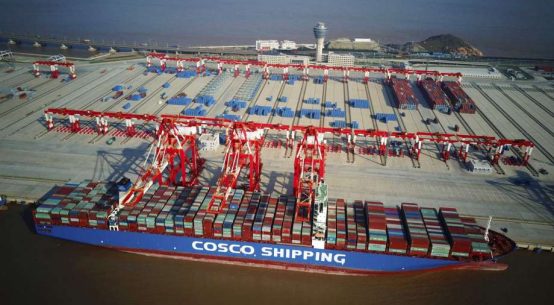
- The national airline is named Nigeria Air.
- The unveiling was done at Farnborough Air Show in London.
The Nigerian government last week unveiled the name and logo of its new national flag carrier, Nigeria Air at Farnborough Air Show in London. The airshow is the meeting place where aircraft manufacturers, engine manufacturers, aircraft leasing companies, aviation consultants and marketers gather every two years to do business.
“The new national carrier will bring Nigeria closer to the world,” said Sen. Hadi Sirika the Minister of State for Aviation.
The Minister also declared: “It is a business, not a social service. Government will not be involved in running it or deciding who runs it. The investors will have full responsibility for this.”
Stakeholders were quick to react on the development.
At the 22nd aviation annual seminar and awards held in Lagos, aviation stakeholders were unanimous that the whole process is still ridden with confusion, with the government not defining the mode of operations and grounds for fair competitions.

Although the Airlines’ operators and experts in the aviation sector welcomed the unveiling of the new national carrier, they expressed concerns over the fate of local carriers once the new airline begins operations later this year.
The Federal Government, in London on Wednesday, unveiled the national carrier christened ‘Nigeria Air’ ahead of the take-off on December 24. The airline is designed to operate on at least 91 routes, out of which 41 are international.
Chairman of Air Peace airlines, Allen Onyema, congratulated the Federal Government on the feat, describing it as an avenue to create jobs for Nigerians and improve capacity of air travel in the country.
Onyema, however, said that the new carrier should be made to operate transparently, with regulators giving a level playing field to all in a fair competition.
“If the airline will be used to frustrate the hard-earned successes of existing airlines, then we all will be against it. As at now, Air Peace has acquired four B777, Med-View just got one and maybe Azman soon. Does it mean that we would be restricted from those 91 routes that Nigeria Air will be flying?.
“We trust Buhari to be a nationalist and he will not allow us to be forced out of business. That is why the new airline has to be transparent. Government has said that it is going to be a private business. It has to operate side-by-side with other airlines. So, if the new airline goes to London, no local airlines should be stopped from the route, once it has the capacity,” Onyema said.

Chief Executive Officer of African Aviation Services Limited, Nick Fadugba, said despite the beauty of the Nigeria Air, “it is still clouded in a lot of uncertainties.”
Fadugba observed that with Nigeria Air coming on board while Arik Air and Aero Contractors are already under the control of the Asset Management Corporation of Nigeria (AMCON), “it means the government owns three airlines and I don’t know any country in the world where that is done.”
He wished that the government had first sat with the airlines’ operators to discuss the implication, routes and sustainability impact of the new national carrier before the launch.
“Imagine three Nigerian airlines competing against one another on the London route with B777 planes. How sustainable is that? Yes, we need strong airlines but the creation of a national carrier must not knock off private airlines,” Fadugba said.
A former Managing Director of the Nigerian Airspace Management Agency (NAMA), Capt. Roland Iyayi, said the Nigeria Air would get rear operational privileges that private carriers don’t get overseas because the Federal Government would do anything and everything to ensure the national carrier succeeds but to the detriment of local carriers.
According to Iyayi, what is prevalent in the sector is not strategic but destructive competition and policies. “Now, we have put the cart before the horse; setting up a national carrier before addressing the destructive existential policies that are killing the airlines in the first place.”









